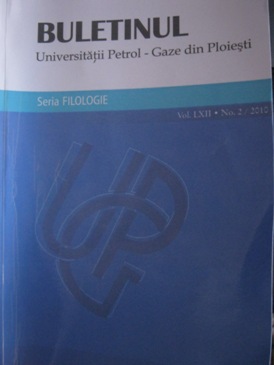Rolul (micro)etnografiei în cercetarea interacţiunii verbale din orele de limbi străine
The Role of (Micro)Ethnography in Classroom Research
Author(s): Carmen PopescuSubject(s): Language and Literature Studies
Published by: Universitatea Petrol-Gaze din Ploieşti
Keywords: Classroom discourse; laughter; attribution theory; ethnographic data
Summary/Abstract: We continually tend to make inferences about the world around us and the people in it and this leads to perceiver ‘biases’ due to the different roles and perspectives of perceivers. The analysis of data coming from classroom discourse points to the idea that in classrooms, as in other settings where there is collective laughter, people laugh together, but not at the same thing or for the same reason. Attribution theory (Jones and Nisbett 1972; Culpeper 2001), specifically the ‘actor-observer bias’, can be used to highlight differences in understanding laughter and its relevance to human interaction. The article provides arguments in favour of the idea that classic analytical frameworks cannot always explain everything that is going on in classrooms, hence the necessity to develop original analytical frameworks, by adding a (micro)ethnographic dimension, which can validate the results of the analysis.
Journal: Buletinul Universitatii Petrol-Gaze din Ploieşti, Seria Filologie
- Issue Year: 2010
- Issue No: 2
- Page Range: 9-16
- Page Count: 8
- Language: English
- Content File-PDF

